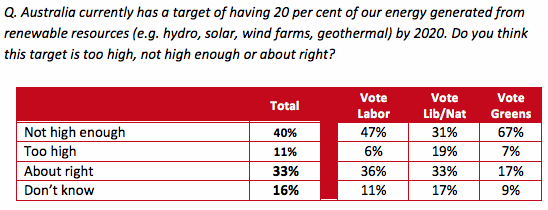In the wake of the government’s decision to demand television networks ban live odds spruiking during sports broadcasters, more than three-quarters of voters want the government to go further and ban all advertising of sports betting during TV and radio sports broadcasts. And 78% of voters are in favour of a full ban on gambling advertising — just 12% are opposed.
New polling from Essential Research reveals an overwhelming majority of voters — 87% — also support compulsory vaccination of children against disease, with only 7% totally against. Some 78% of voters support childcare centres to refuse to enrol children who have not been vaccinated, with only 71% of Greens voters supporting it compared to 80%/82% of Labor and Liberal voters.
But voters don’t support the recent push from Victorian Liberals to privatise public broadcasters. Only 15% of voters are in favour privatisation of the ABC and SBS — 57% stand against. Coalition voters were more likely to support privatisation over Labor voters, but still only support privatisation by 21% to 51%.
On voting intention, Labor’s position has marginally improved since last week, with its primary vote up a point to 35%. The Coalition remains on 48% and the Greens on 8% for a stable two-party preferred outcome of 45-55%.
And as conspiracy theorists prepare to descend on Canberra for an anti-wind farm rally on June 18, led by radio entertainer Alan Jones, there’s little evidence Australians share their concerns about the alleged array of diseases caused by wind turbines. In fact, 76% of voters want to see more wind farms built, including 71% of Liberal voters and, unsurprisingly, 89% of Greens voters.
There is also speculation the Coalition will abandon the 20% Renewable Energy Target once in government: 40% of voters believe the target is not high enough; 11% believe it is too high, while 33% believe it is about right. Liberal voters are least enthusiastic — only 31% believe the RET should be higher, and 19% lower; 67% of Greens voters want the target to be higher.

Voters are significantly at odds with the commentariat over the car industry. A little over half of those polled by Essential believe it’s important Australia has a car manufacturing industry “even if it costs hundreds of millions of dollars each year in government support and subsidies”. Interestingly, it’s Greens voters who are the least supportive of the industry — only 36% say it’s important, a view distinctly at odds with the Greens’ strong support for automotive protectionism.







Not another Alan Jones led fiasco to Canberra and for what…so he can push his anti-climate change mantra to the gullible.
Can someone please answer this one; why is it the farmers that don’t have windfarms have all the illnesses caused by them, yet the farmers who have the windfarms have no symptoms? Surely a case of money cures all ills!
Also, would the same ill farmers support CSG mining on their land?
MJPC, well that’s easy: the farmers that don’t have wind farms on their properties are stuck on their properties, in the shadow of the wind farms while the farmers with the turbines have banked the money and moved out/gone on holiday.
Most community minded people have no doubt that prolonged detention causes psychological issues for asylum seekers, yet they struggle to believe that being sentenced to a lifetime of 35 storey high moving turbines in the vicinity would have an impact.
How many of the vast majority of people that support wind farms face the prospect of actually having to live with them in their vicinity?
CSG on their land? Yet another furphy.
Wind farms are a brilliant idea if they can be proved to reduce the carbon balance – and that has to take into account the embedded carbon in the production/installation of the units and the underlying energy requirements to back them up in case the wind doesn’t blow. Strange that I have asked wind farm proponent groups for this information and they don’t have it or won’t share it. Surely it is fundamental to their analysis.
Can we have live odds on Abbott et al. ditching their climate change policy after the election? This is despite it being repeatedly committed to, of course.
It is complex, flawed, expensive, open to abuse and doomed to miss its target, but they won’t be the reasons.
The RET will go with it. Or even if not so, if there is a vote or two in it or it inconveniences the wrong people. The chatter is strong that they will gut it, as being too effective.
@Frank Nimby http://www.vestas.com/en/annual-report_2012/management-report/social-and-environmental-performance/environmental-performance/carbon-footprint.aspx